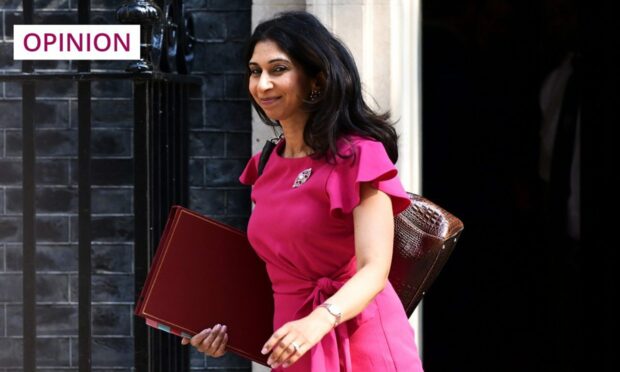Home Secretary Suella Braverman recently announced the newest revision to UK immigration rules in an attempt to curb the current numbers, estimated at around 700,000.
The new rules, set to be enforced by January 2024, aim to limit family members joining international students. In practice, they risk discouraging international students with dependents from pursuing an education in the UK altogether.
While big English metropolitan areas with a high percentage of students may survive, Scotland will probably have to bear the cross. Not only is this a threat to Scotland’s reputation, but the economy will also suffer a hard blow.
In the last decade, Scotland has prided itself on its openness. It has offered home fees to EU students, and has rewarded talent from all over the world, granting competitive scholarships and places at our excellent universities.
Students have played their part in this exchange, too. In fact, it is estimated that overseas students alone contribute more than £5 billion to the Scottish economy every year.

That doesn’t include the large portion of EU students and the wealth they bring. For context, for approximately £23 million invested in giving EU students home fees, the economy gets a £509 million boost annually. In financial terms, this should be a no-brainer.
Although on a smaller scale, the situation in Aberdeen is no different: the more international students, the more prosperous our economy.
A recent investigation led by The National shows that areas around the biggest universities benefit most, with the north-east and Fife gaining a net impact of £154.1 million, while Aberdeen alone gains £111.2 million.
That’s £111.2 million that, in part, goes into funding vital public services: schools, the NHS, the arts, research, and much more.
If Braverman’s planned rules are enforced, the current buoyancy and boost to the local economy will become nothing but a forgotten dream. Let’s face it – the moment we shut the door to international students, we are also emptying our pockets.
It isn’t just about money
But it’s not just about milking the cash cow. Students form a vital part of Aberdeen’s population. The University of Aberdeen boasts a “community of 14,000 students of more than 130 nationalities”. RGU goes as far as claiming 16,000 from 150 countries.
According to the Scottish Government, 75% of students who choose Aberdeen for their education end up remaining in Scotland. And 13% of them (as opposed to only 8% in Edinburgh) make Aberdeen their permanent home.
These people bring to the city a wealth of culture, knowledge, connections and opportunities. Many of them come and study to make our energy systems renewable, some become entrepreneurs and create thousands of jobs for the local area. All of them bring diversity and provide a cultural boost that puts Aberdeen (and Scotland) on the world map.
Let’s not forget the very important academic component of multicultural universities. There is a reason why the UK has some of the best in the world: they welcome students from across the globe, and the status and performance of academic institutions increases. More ideas generate more progress and, further down the line, more wealth and investments in society.
We all benefit from students choosing Aberdeen as their home. And, yet, policies made down south demonstrate – once again – a disregard for what is sensible in the north.
Although it doesn’t always boil down to politics, this time the facts point in that direction. It doesn’t come as a shock that international students are the target of this new policy: without any power to vote in general elections and defend their interests, they are an easy target.
Keep Aberdeen ‘open to all’
The immigration debate is a perfect example of tilting at windmills, with decisions being made at the expense of an imaginary enemy.
Faced with overwhelming data, the Department of Education has raised concerns that fewer international students could negatively impact the wider funding of higher education.
According to the latest update, students on selected research courses are the only exception to the proposed rules. However, those form 8% of international students in the UK, and only 1.5% across Scotland. We cannot ensure the future of accessible research and education nationwide on that figure alone.
Along with international students, our often unsung asset, go billions of pounds in investment, new businesses, advancements in renewable energies, arts and culture
Scotland, and Aberdeen, would be foolish to nod in agreement with the new proposed policies. If implemented, as Suella Braverman wishes, the new rules would have a catastrophic impact on the economy of Scotland as a whole, and on the north-east, in more ways than one.
Along with international students, our often unsung asset, go billions of pounds in investment, new businesses, advancements in renewable energies, arts and culture.
We would also be letting go of a tapestry of culture and diversity that other places in the UK can only dream of.
The University of Aberdeen’s motto is “open to all”. I cannot imagine a more appropriate time to remind the entire community that this is what we stand for.
Rory Buccheri is a freelance journalist, passionate about all things arts and food-related in the north-east of Scotland


Conversation